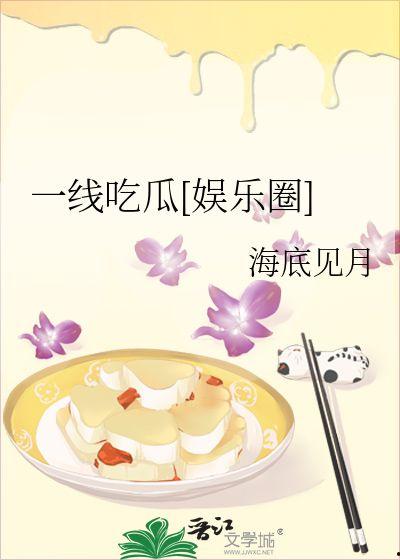“娱乐吃瓜君”是一个在多个社交平台上活跃的账号,主要以分享娱乐圈的八卦和新闻为主。以下是关于“娱乐吃瓜君”的英文介绍:
Entertainment Gossip King is a popular account that actively shares entertainment news and gossip across various social media platforms. The account covers a wide range of topics, including celebrity scandals, behindthescenes stories, and trending events in the entertainment industry. It provides fans with the latest updates and insights into the lives of their favorite stars.
Key Features:
Entertainment News: Regular updates on the latest happenings in the entertainment world.
Celebrity Gossip: Exclusive insights into the personal lives and controversies of famous celebrities.
Trending Topics: Coverage of the most talkedabout issues and discussions in the entertainment community.
Platforms:
Douyin : With over 2 million followers and 300 million likes, Entertainment Gossip King shares a wide range of videos and content on this popular Chinese short video platform.
Weibo : The account is also active on Weibo, where it shares updates and interacts with its followers.
Toutiao : Entertainment Gossip King has a presence on Toutiao, a Chinese content platform known for its personalized content recommendations.
希望这个介绍能帮助你更好地了解“娱乐吃瓜君”。 你也是那个热衷于“吃瓜”的英文爱好者吗?
在信息爆炸的互联网时代,我们每个人都是“吃瓜群众”。而在这个全球化的世界里,用英文“吃瓜”也是一种时尚。今天,就让我带你一起探索这个有趣的领域,看看“吃瓜”在英文里有哪些精彩表达!
一、吃瓜的英文表达:从“Melon-eating masses”到“Rubbernecker”
你知道吗?在英文里,“吃瓜群众”可以有多种表达方式。最直接的就是“Melon-eating masses”,这个词组最早出现在BBC的一篇文章中,用来形容那些对热点事件充满好奇,却又不参与其中的人。

除了“Melon-eating masses”,还有“Rubbernecker”。这个词组由“rubber”和“necker”组成,形象地描述了那些伸长脖子、好奇地围观的人。在英文中,它既可以作为动词,表示伸长脖子看、好奇地听,也可以作为名词,表示看热闹的人。

二、吃瓜的英文俚语:从“Give me the tea”到“Spill the tea”
在英文中,关于“吃瓜”的俚语也有很多。比如,“Give me the tea”和“Spill the tea”。

“Give me the tea”直译为“给我茶”,但实际上,这里的“tea”并不是指茶,而是指八卦、新闻或秘密。所以,“Give me the tea”的意思就是“给我一些八卦消息”。
而“Spill the tea”则更直接,它的意思是“爆料、吃瓜”。这个词组由“spill”(涌出、溢出)和“tea”(八卦)组成,形象地表达了分享八卦的行为。
三、吃瓜群众的英文表达:从“Netizens”到“Onlookers”
在英文中,我们也可以用“Netizens”或“Internet users”来指代“吃瓜群众”。这两个词组都表示网民,是我们在互联网上常见的群体。
除了“Netizens”和“Internet users”,我们还可以用“Onlookers”来指代“吃瓜群众”。这个词组表示旁观者,形象地描述了那些对热点事件充满好奇,却又不参与其中的人。
四、吃瓜的英文表情:从“Onlooker”到“Gawker”
在微信、微博等社交平台上,我们经常会看到各种表情包。其中,关于“吃瓜”的表情包也有很多。比如,“Onlooker”和“Gawker”。
“Onlooker”是英文中用来表示“旁观者”的词,与“Melon-eating masses”和“Rubbernecker”有异曲同工之妙。而“Gawker”则表示那些伸长脖子、好奇地围观的人,与“Rubbernecker”意思相近。
五、吃瓜的英文文化:从“Entertainment”到“Leisure”
在英文文化中,娱乐和休闲是人们生活中不可或缺的一部分。而“吃瓜”作为一种娱乐方式,也受到了许多人的喜爱。
在英文中,“Entertainment”表示娱乐,而“Leisure”则表示休闲。这两个词都与“吃瓜”有着密切的联系。当我们“吃瓜”时,我们不仅是在娱乐自己,也是在享受休闲时光。
:吃瓜,让生活更精彩!
通过今天的探索,相信你已经对“吃瓜”在英文中的表达有了更深入的了解。无论是“Melon-eating masses”还是“Rubbernecker”,无论是“Give me the tea”还是“Spill the tea”,这些词汇都让我们感受到了“吃瓜”的乐趣。
在这个信息爆炸的时代,让我们继续做那个热衷于“吃瓜”的英文爱好者,一起分享、一起成长,让生活更加精彩!








